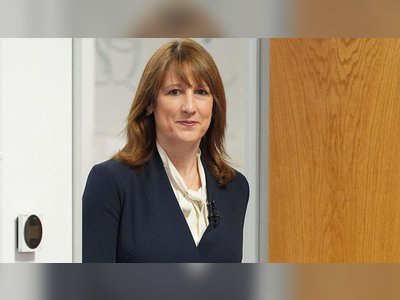0:00
0:00
Child Exploitation and Cuckooing Set to Become Criminal Offences in UK Legislation
New legislative measures aim to tackle child criminal exploitation and cuckooing, alongside other protective measures for vulnerable individuals.
The UK Parliament is set to introduce new legislation, the Crime and Policing Bill, next week that will specifically criminalize child criminal exploitation and the practice known as 'cuckooing'.
This legislation aims to establish clear legal frameworks for protecting victims and preventing exploitation.
Cuckooing involves the takeover of a vulnerable individual’s home by criminals, who use the residence as a base for illegal activities, including drug dealing.
Home Secretary Yvette Cooper characterized such exploitation as "sickening" and emphasized the need for legislation that ensures victims are adequately protected from these often concealed crimes.
Under the current guidance from the Crown Prosecution Service (CPS), prosecutors may pursue charges related to cuckooing by referencing other offences such as assault, harassment, or modern-day slavery.
However, these existing categories may not comprehensively address all instances of cuckooing.
The previous Conservative government had aimed to criminalize cuckooing within its Criminal Justice Bill, but this initiative did not progress due to the dissolution of Parliament before the snap general election.
Gennine Bird, a former drug user, described the intimidation tactics employed by drug dealers in cuckooing situations, highlighting the vulnerability of those involved.
Intimidation can escalate to violence, and vulnerable individuals may be coerced into illegal activities to pay off debts to the dealers.
Dr. Laura Bainbridge, an associate professor at Leeds University specializing in cuckooing, noted the complexities surrounding victim-perpetrator dynamics.
She stated that each case of cuckooing is unique, making it challenging to identify roles accurately within these situations.
Bainbridge expressed hope that the new legislation would prioritize the protection of victims over their prosecution, advocating for a collaborative approach involving multiple agencies rather than solely punitive measures.
The proposed child criminal exploitation offence is designed to target individuals who engage in grooming children for participation in various criminal activities, including drug trafficking through county lines operations.
The Home Office has identified approximately 14,500 children at risk of criminal exploitation for the year 2023-24, although government officials indicate that this figure may represent an underestimation.
The cuckooing offence outlined in the forthcoming bill will carry a maximum sentence of five years for offenders, while the standalone child criminal exploitation charge may result in a penalty of up to ten years in prison.
Additionally, the legislation will introduce child criminal exploitation prevention orders, allowing courts to restrict individuals deemed a risk to children.
Violating these orders will also constitute a criminal offence, with a potential maximum sentence of five years.
Dame Rachel de Souza, the UK’s Children’s Commissioner, has voiced support for the new measures, asserting that they will clarify the status of exploited children as victims rather than offenders.
She emphasized the necessity of recognizing and addressing the experiences of children targeted by adult criminals, advocating for a justice system that fundamentally prioritizes child welfare and protection.
Beyond these measures, the bill will also propose the explicit criminalization of spiking, introducing an offence that could result in a prison sentence of up to ten years.
This legislation aims to establish clear legal frameworks for protecting victims and preventing exploitation.
Cuckooing involves the takeover of a vulnerable individual’s home by criminals, who use the residence as a base for illegal activities, including drug dealing.
Home Secretary Yvette Cooper characterized such exploitation as "sickening" and emphasized the need for legislation that ensures victims are adequately protected from these often concealed crimes.
Under the current guidance from the Crown Prosecution Service (CPS), prosecutors may pursue charges related to cuckooing by referencing other offences such as assault, harassment, or modern-day slavery.
However, these existing categories may not comprehensively address all instances of cuckooing.
The previous Conservative government had aimed to criminalize cuckooing within its Criminal Justice Bill, but this initiative did not progress due to the dissolution of Parliament before the snap general election.
Gennine Bird, a former drug user, described the intimidation tactics employed by drug dealers in cuckooing situations, highlighting the vulnerability of those involved.
Intimidation can escalate to violence, and vulnerable individuals may be coerced into illegal activities to pay off debts to the dealers.
Dr. Laura Bainbridge, an associate professor at Leeds University specializing in cuckooing, noted the complexities surrounding victim-perpetrator dynamics.
She stated that each case of cuckooing is unique, making it challenging to identify roles accurately within these situations.
Bainbridge expressed hope that the new legislation would prioritize the protection of victims over their prosecution, advocating for a collaborative approach involving multiple agencies rather than solely punitive measures.
The proposed child criminal exploitation offence is designed to target individuals who engage in grooming children for participation in various criminal activities, including drug trafficking through county lines operations.
The Home Office has identified approximately 14,500 children at risk of criminal exploitation for the year 2023-24, although government officials indicate that this figure may represent an underestimation.
The cuckooing offence outlined in the forthcoming bill will carry a maximum sentence of five years for offenders, while the standalone child criminal exploitation charge may result in a penalty of up to ten years in prison.
Additionally, the legislation will introduce child criminal exploitation prevention orders, allowing courts to restrict individuals deemed a risk to children.
Violating these orders will also constitute a criminal offence, with a potential maximum sentence of five years.
Dame Rachel de Souza, the UK’s Children’s Commissioner, has voiced support for the new measures, asserting that they will clarify the status of exploited children as victims rather than offenders.
She emphasized the necessity of recognizing and addressing the experiences of children targeted by adult criminals, advocating for a justice system that fundamentally prioritizes child welfare and protection.
Beyond these measures, the bill will also propose the explicit criminalization of spiking, introducing an offence that could result in a prison sentence of up to ten years.











